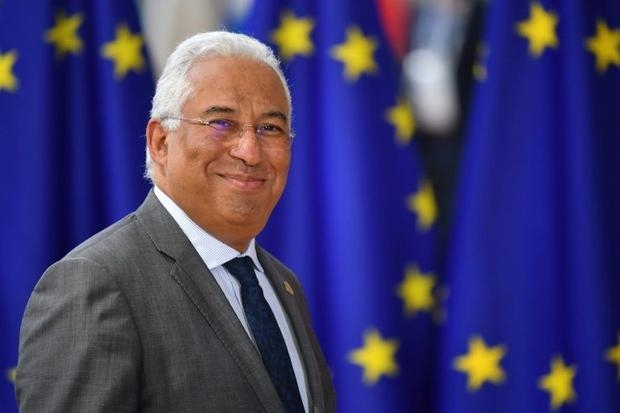Portugal PM pressures opposition with threat to resign

Portugal’s Socialist prime minister has boosted his credibility in an election year and piled pressure on the conservative opposition by threatening to resign if parliament approves salary increases for teachers, analysts say.
Prime Minister Antonio Costa issued the warning on Friday, a day after a parliamentary education committee approved giving teachers salary increases that were not paid during the country’s financial crisis.
The proposal was unexpectedly backed by his minority government’s far-left allies – the Communists and the Left Bloc, plus the conservative PSD and CDS parties which have long defended the need for stiff austerity measures.
It must be ratified by the full parliament but Costa said his government will resign if it goes through, bringing forward general elections slated for October 6. The far-left parties have already ruled out any compromise.
Costa said the measure would cost 800 million euros ($895 million) a year and undermine efforts to balance the budget.
The stand-off however positions the Socialists as “a centre-left party ... (and) puts pressure on the rightist camp because it shows their incoherence and contradictions” on austerity, political analyst Antonio Costa Pinto told AFP.
“Whoever thought the Socialist Party would turn left was completely mistaken. The centre is what matters for the elections,” he added.
Recent polls have suggested the Socialists are on track to win the next general election but fall short of a majority.
The popularity of the party has slipped in recent months amid a scandal over perceived nepotism within the government. Costa’s cabinet includes a married couple and a father and daughter.
The Socialists’ chances have now improved since they “appear as the only responsible party,” political analyst Pedro Marques Lopes wrote in a column Saturday in daily newspaper Diario de Noticias.
“Welcome to the now real possibility that the Socialists will win an absolute majority. With compliments of the PSD,” Lopes wrote.
Since coming to power in 2015 with the support of the Communists and the Left Bloc, Costa’s government has focused on restoring fiscal credibility and balancing the budget.
The budget deficit, once 11 percent of total economic output during Portugal’s 2010-14 debt crisis, has been almost eliminated even as the government has opened the purse strings in some areas, raising pensions and cutting taxes for those on lower wages.
This helped the government win the prestigious post of Eurogroup leader for its finance minister, Mario Centeno, who in this role chairs meetings of eurozone finance ministers.
Centeno was quick to accuse opposition parties of being irresponsible in voting for the teachers’ salary hike.
Costa has also warned that the extra spending would have to be made up through “significantly higher taxes” or steep public spending cuts.
Costa’s move was “an indisputable act of political mastery” since it allows him to present the Socialists as the “guarantor of fiscal stability and the right as being irresponsible,” political analyst Jose Miguel Judice told private TV station Sic. - AFP
